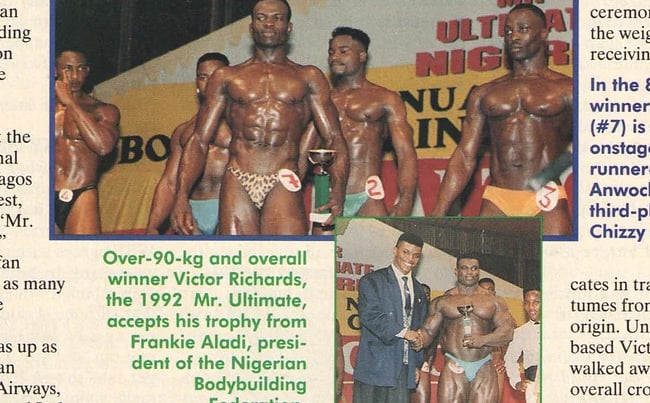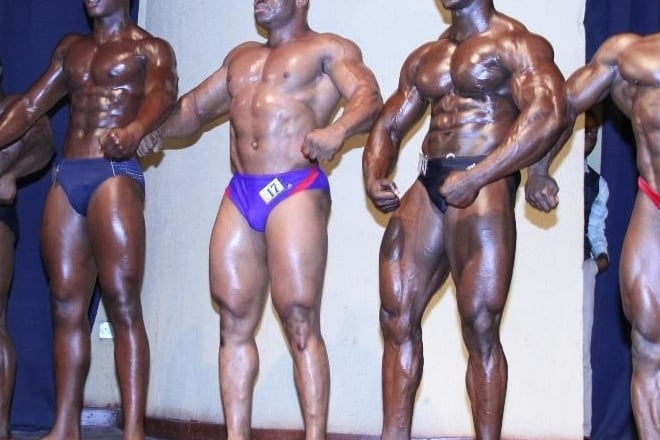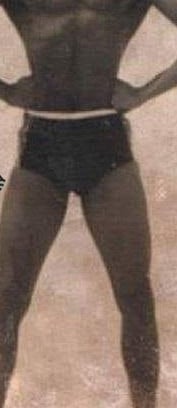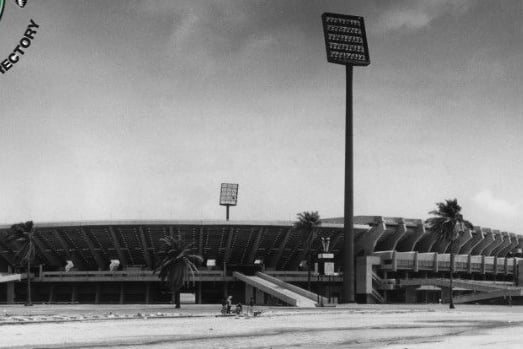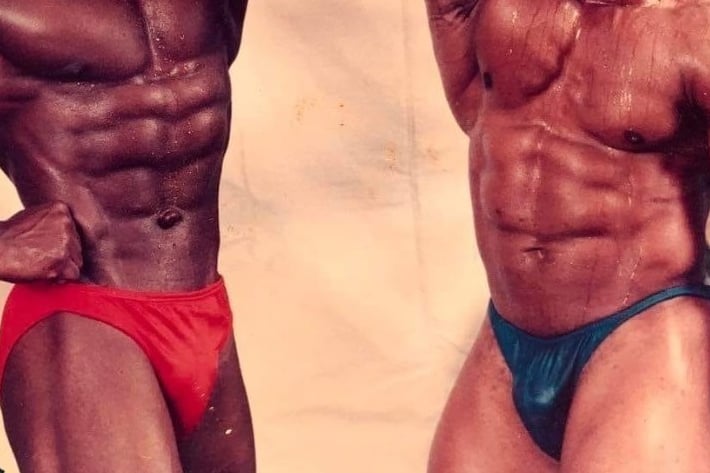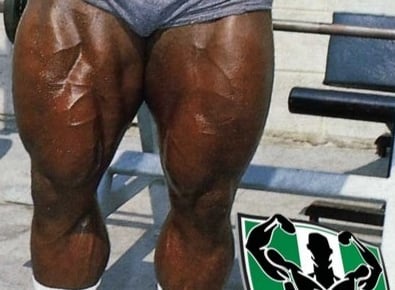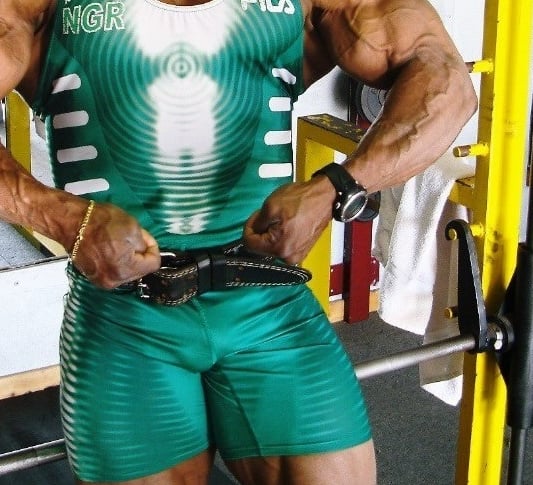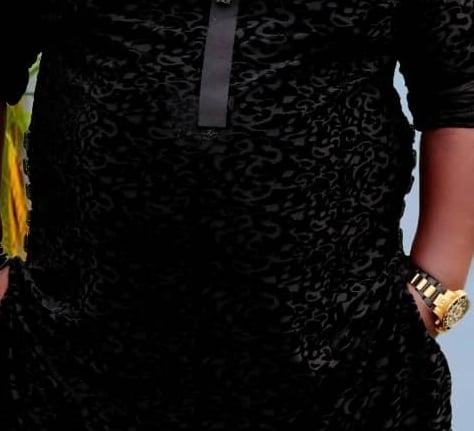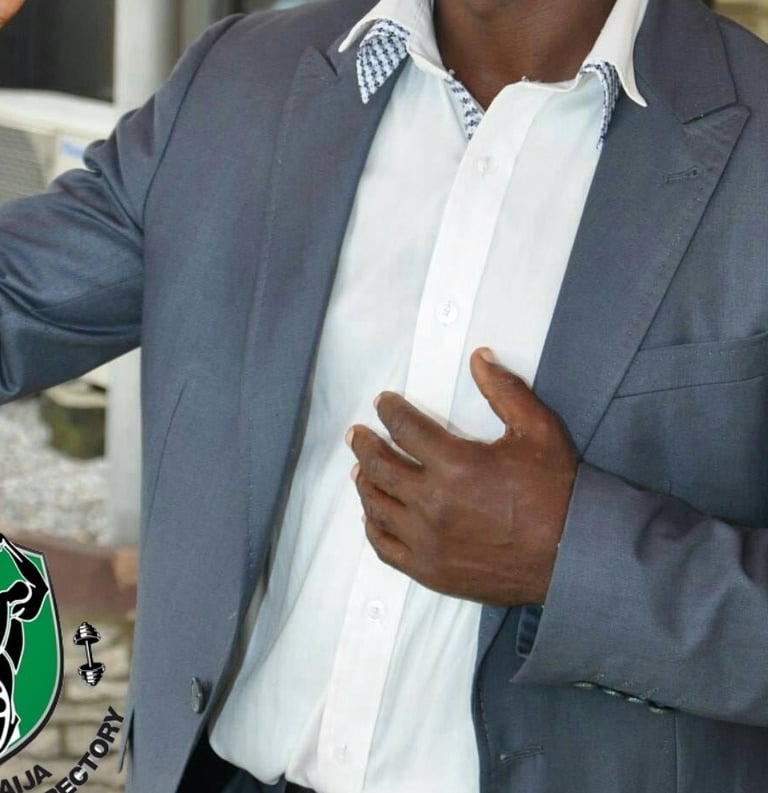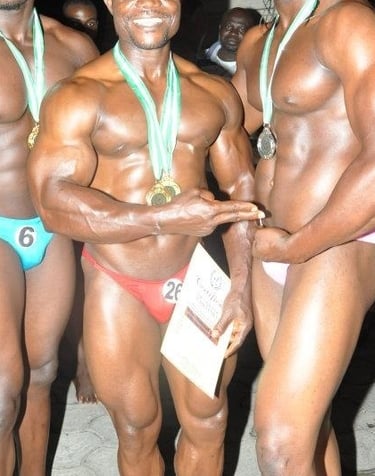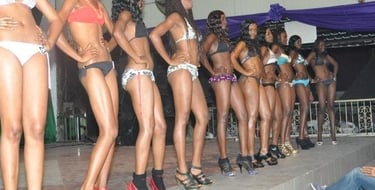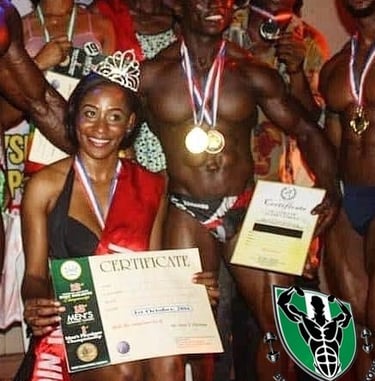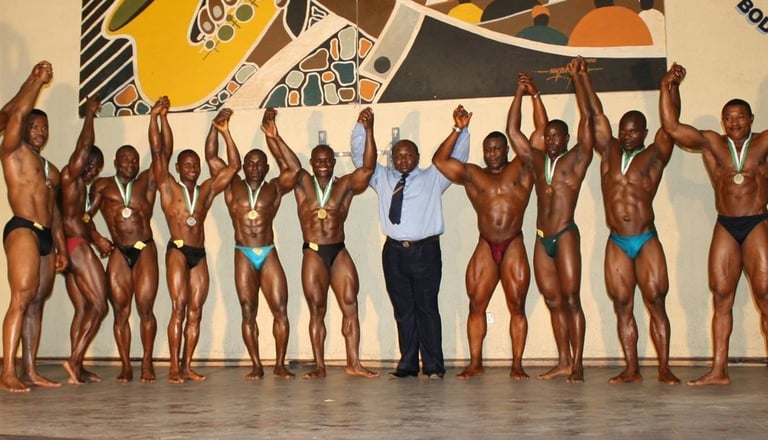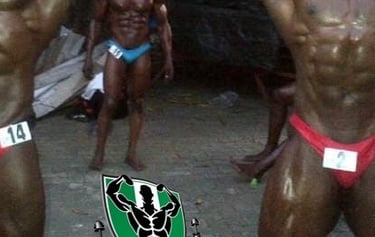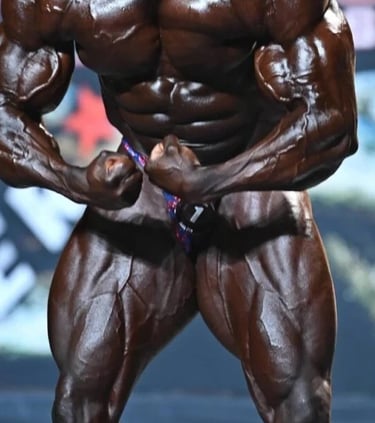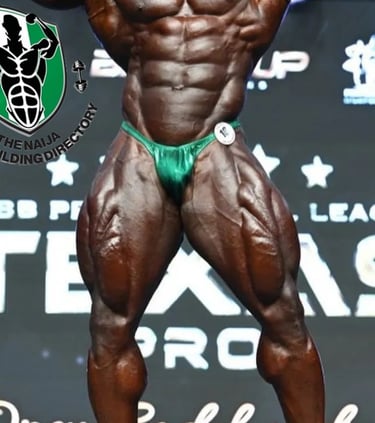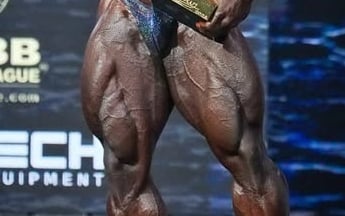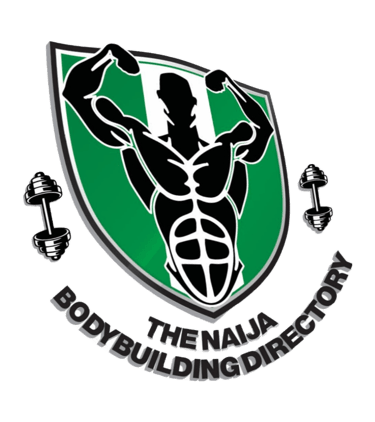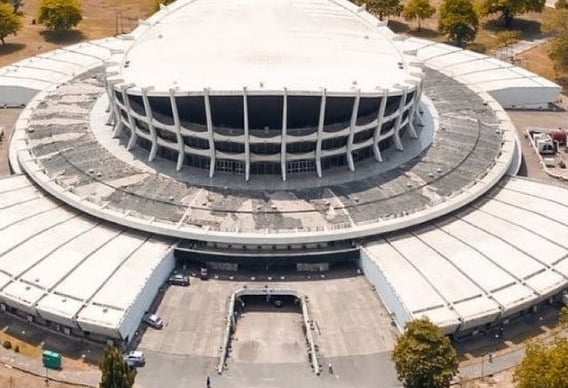The evolution of bodybuilding in Nigeria has a modest history. Although the sport really started gaining traction in Nigeria in the early 2000s, its roots can be traced back to the decades prior. Back then, the sport was still in its nascent stages, with limited recognition and infrastructure. The sport was primarily practiced by dedicated individuals and there were very few major bodybuilding events organized frequently on a national scale. However, the passion and dedication of early enthusiasts laid the foundation for the growth and development of the game in the country.
The likes of a then-adolescent Victor Uwaifo, who would later go on to become a celebrated musician and artist, were among the early pioneers of bodybuilding in Nigeria, practicing and promoting the sport during the 1960s, as a newly-independent nation was just starting to find its feet. In the 1970s, the sport received a major boost, with the establishment of the first standard public gym in Nigeria (in late 1972) as a result of the construction of the National Stadium complex in Lagos for the 1973 All Africa Games. This marked a significant milestone in terms of the development of proper infrastructure for bodybuilding, fitness and sports in general in the country.
The concept of competitive bodybuilding started to emerge in the ‘80s, although the few shows that did indeed take place were still relatively informal and not widely recognized on a national scale. However, this decade saw the emergence of the first set of real bodybuilding athletes, as opposed to people who generally practised weightlifting and powerlifting. Examples of such dedicated athletes include Muritala ‘Murimore’ Idowu and Abdulrasaq Kazeem. Towards the end of the decade, serious attempts were made to establish a Nigerian bodybuilding federation governing the sport as well as a proper championship specifically for bodybuilders for the first time in the country’s history, with the first edition of what was christened ‘Mr. Ultimate’ taking place.
The second edition of this championship was held in the year 1992 and marked a significant milestone in the sport's history within the country. It was staged at the prestigious (then-named) National Arts Theatre (now named the Wole Soyinka Centre for Culture and the Creative Arts) in Lagos. This was the biggest ever such event in the nation’s history at the time, and it marked a major step-up for the sport in the country. Victor Richards, a Nigerian-American bodybuilder, won the title of ‘Mr Ultimate’ and secured his IFBB pro card in the process, thus becoming one of the first Nigerian bodybuilders to achieve professional status. Following the 1992 championship, the sport steadily began to grow, with more gyms and athletes emerging, mostly in the cities of Lagos and Port Harcourt, which to this day remain the hubs for the game in the country. While the sport subsequently received a boost overall, the momentum of staging championships however died down gradually for various reasons, the bodybuilding federation went defunct and serious competitive bodybuilding in the country was to go into hibernation for the next decade or so.
The early 2000s saw the sport experience a steady increase in popularity in the country, with the appearance of more gyms and training programs dedicated to bodybuilding and fitness enthusiasts, thus helping foster a growing community of bodybuilders and promoting the sport. This decade saw the re-emergence of governing federations for the sport in the country: the BBAN (Bodybuilding Association of Nigeria) was established in early 2002 and was later to become the Amateur Bodybuilding and Fitness Federation of Nigeria (ABBFN), the Nigerian affiliate of the International Fitness and Bodybuilding (IFBB). Nigerian athletes also started actively competing beyond the nation's shores; an example being Idowu, who went on to carve a niche for himself in Belgium.
The 2000s also saw attempts to re-establish the tradition of annual championships. In this regard, a few (ultimately) short-lived competitions such as ‘Real Man Nigeria’ and the NBON championship were created, but a sense of stability and consistency prevailed starting in the year 2010, with the launch of a brand new competition titled ‘Mr Flex Nigeria’ which has been held on an annual basis since then, providing an immediate platform for many raw talents to showcase their talents and use as a launchpad for further progression of their careers. Some of the prominent athletes thrown up by this event include Femi Adesoye and Ifesinachi Friday Ibenne, who subsequently moved to the United Arab Emirates (UAE), where he has begun to hone a professional bodybuilding career for himself. During this decade, women also began to participate in competitive fitness and bodybuilding events as well.
Two figures emerged who would drive the promotion of the game in the country over the next 2 decades: Mr. Soye Elekima, the founder and President of the ABBFN and the promoter of shows such as the Ultimate Classic and the IFBB Mr. Universe Nigeria; as well as Mr. Stephen Okolie-Odene, the promoter of the Mr Flex Nigeria championship, which, now in its 15th straight year, has distinguished itself as the longest-running bodybuilding event in the country today.
Nigeria’s ever-growing diaspora population has also helped boost the image of the sport, with bodybuilders such as Blessing ‘Boogeyman’ Awodibu, Andrew ‘Jacked’ Chinedu and Samson ‘Nigerian Lion’ Dauda making waves on the international stage, particularly over the course of the current decade. In 2024 Dauda, who is now based in the United Kingdom, made history by winning the prestigious ‘Mr. Olympia’ title, becoming the first person of Nigerian origin to achieve this feat.
Overall, bodybuilding as an organised sport can be said to have come quite some way in Nigeria, despite its very simple beginnings and in spite of ongoing challenges hindering its full development. Although there is still a lot of room for growth, it is very apparent that Nigeria possesses huge potential; the sport is ripe for an explosion-this can definitely happen with improved administration and increased investment, drawing inspiration from what has been seen in recent years with other sports such as mixed martial arts, MMA, in which Africa’s ‘sleeping giant’ has been aroused from its slumber.
The 'Big Three', like a number of other Nigerian bodybuilders, have become a source of inspiration for aspiring athletes worldwide, showcasing dedication, resilience, and the potential to succeed on a global scale.
